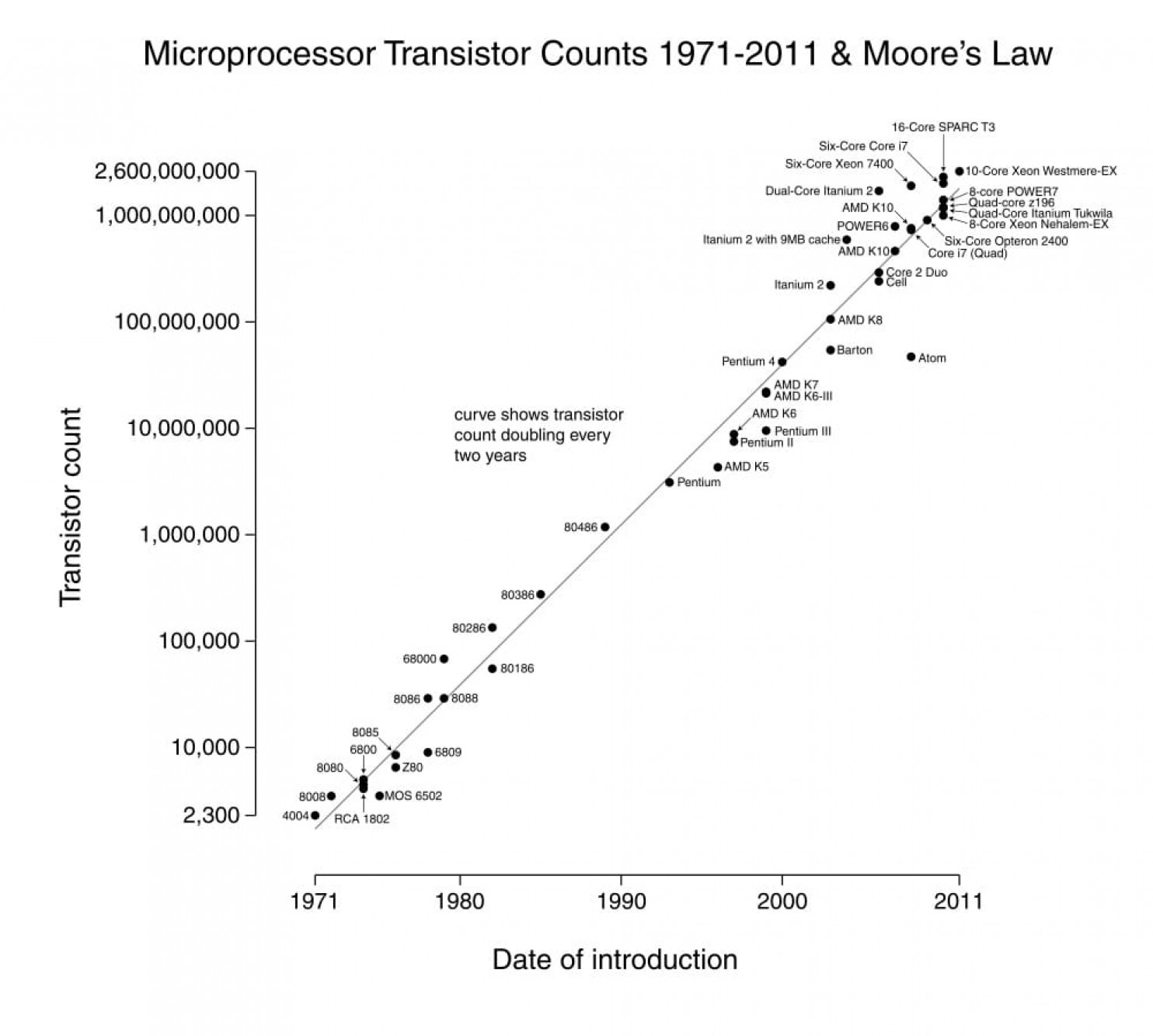I (barely) remember when the first iPhone came out. I remember playing this skeeball app on it, and really enjoying it. I thought it was so cool, and fast, and I thought the phone was sleek and small.
Fast foward - I use that iPhone as an alarm clock (it can't do much else - we took it off our "plan" or whatever it's called a while ago). I've played the Skeeball game since then. It's slow as all get out, and it looks much thicker and uglier than the shiny new smartphones common among teens now.
I remember using an older Mac computer that was my mom's when I was younger. Now I have a chromebook that's pretty fast, and dual boots Linux and Chromium.
I have an arduino the size of your hand that can run LEDs and motors and whatever else you want it to do. You can buy a raspberry pi for \$30 (of course, you have to hook it up to a monitor, keyboard, and mouse, but still). The chromebook we got on sale for $100. I remember looking up prices for old computers and being shocked.
Even in your student's lifetimes (they're older than I am!) they'll have some memory of computers getting faster, cheaper, nicer, better. Tell them to extrapolate that back a couple of years. And then a couple of years more. Show them where they fell on a graph of Moore's Law - and ask them to imagine the start of it.
(EDIT)
I see you live in San Francisco. Send those young whippersnappers down to the Computer History Museum in San Jose on a Saturday to see one of the demonstrations for the IBM 1401 (and tell them to look through the galleries while they're at it; it's a great museum, probably in my top ten I've ever been to, and I've been to a lot of museums).
